The From Little Things Big Things Grow exhibition website includes interviews with 13 Indigenous and non-Indigenous Australians. Explore their personal stories of discrimination, injustice and survival from the 1940s to the 1970s.
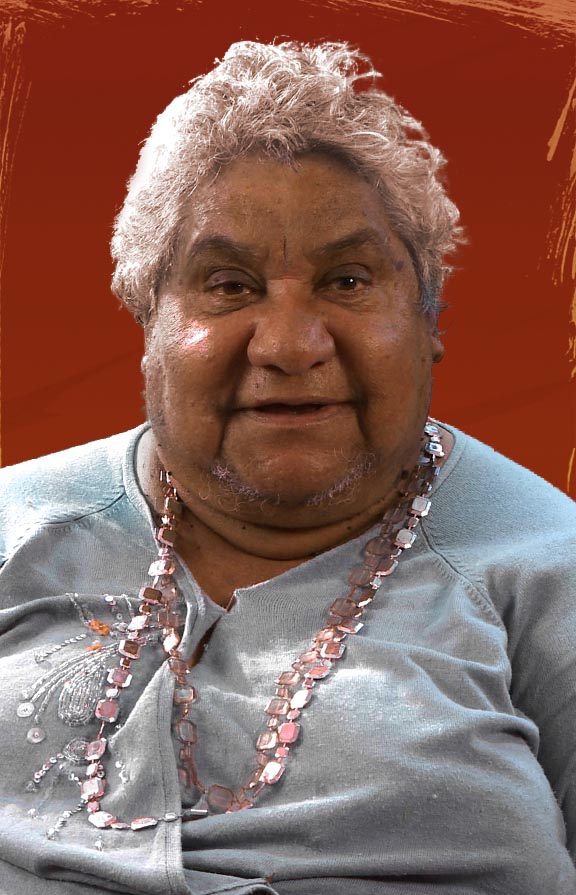
I would have liked to have been a waitress
I had a happy childhood. I grew up on the Tweed, went to school at state school. I had a great time and was a championship sportswoman.
Then when I left school I got a job at Greenmount boarding house, that is when I noticed the racism. I could only work in the kitchens, me and my Aboriginal friends. I would’ve liked to have been a waitress but we weren’t allowed out in the dining room.
When I came to Brisbane to get a job, I found it hard as well. You couldn’t get the job you wanted, you had to just be behind the scenes. Then when you go into the shops, you could be standing next in line to be served, they’d look all over you, they’d serve all around you, they wouldn’t serve you.
You would walk out without buying any purchase or anything. You didn’t feel like they wanted to serve you. They didn’t want to serve you. They’d just serve all the other white people in front of you – made it hard.
Just going to the movies
When we grew up and in my teenage years we’d go to the movies. Well we’d go with our mates, white mates, anyone who wanted to go and see the movie. We would all meet at different one’s houses and go along together. The police would be coming along, crawling along after you and they’d want to know what you’re doing.
They’d ask the black ones, ‘What are you doing? Where are you goin’? What are you up to?′ We weren’t up to anything. We were just going to the movies. They wouldn’t ask the white ones that, the white girls with us, what they were doing. They only wanted to know what we’re doing. Then we’d get jack of that, we’d get frightened.
We didn’t know what to do. Even when you went to the movies then you’d be all upset: what’s going to happen when you’re going home? They’d be out again. That’s all they used to do was follow you like you were a criminal, and we weren’t criminals. We were only happy girls going to the movies.
Not welcome
Every Saturday night we used to go to the boat house on the river bank. It was the rowing club’s hall and we’d dance the night away there. We’d have a great time. Some of us wanted to go to Cloudland, the main dance place in Brisbane, but we felt we weren’t welcome there. That’s why we never went there. So we stayed. We went to the boat house.
The only thing the police were outside patrolling it all the time, goin’ up and down in the police car waiting for something to happen, waiting for a brawl or something. And there wasn’t many fights. We never had any fights. Everybody was enjoying themselves, having a good time.
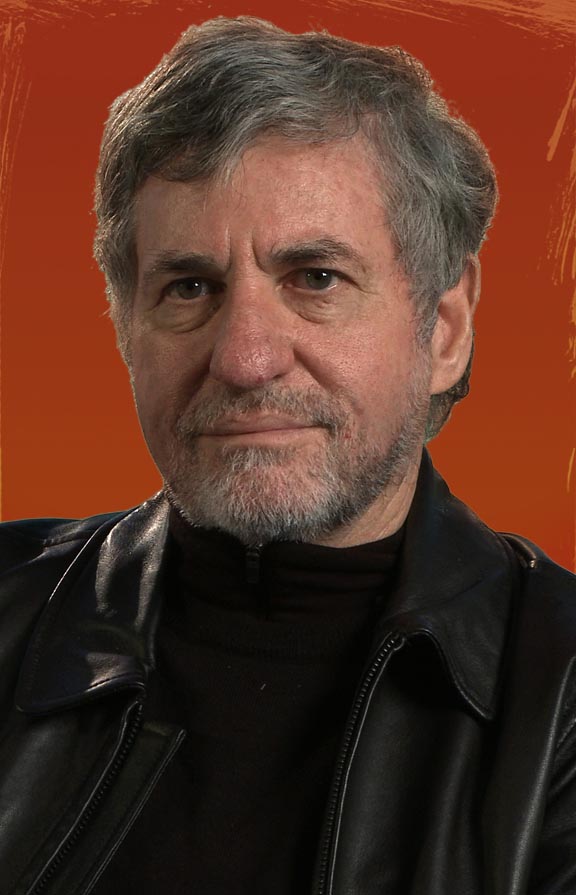
Downstairs ... that’s where they go
I grew up in Sydney, but often in holidays I’d visit my cousins in the country, and Moree in particular.
When I was about eight or nine – this would have been 1949, 1950 or something like that – I was in Moree, and of course in those days long before television in 1950, the big thing we did as kids was go to the pictures on Saturday afternoon.
That was what I always did back in Sydney. We were always given ninepence: sixpence to go into the cinema and threepence to spend on lollies.
But when I went to Moree, we went upstairs which cost ninepence and there was no lolly money. I said to my cousins, ‘But why? Why don’t we go downstairs, it’s cheaper.’ ‘Oh no, that is where the Aborigines go.’ ‘But yes, we are losing all our lolly money.’ ‘No, no, no, this is the way we do it here.’
So when in Rome, do as the Romans, so we went upstairs and did without the lollies.
School ties
After the Freedom Ride in 1965, a lot of us continued that activity because it wasn’t just this one bus trip of two weeks. This was a long battle. I’d often go back to Walgett. One of the issues in Walgett in 1965 still was the issue of Indigenous people being allowed in the upstairs of the cinema. And there were efforts to challenge this.
I was there one night, a hot Saturday night, everyone dressed up in their Saturday best, all the people from the surrounding stations and farms were there, and of course the Aborigines. There was a lot of tension. We’re all gathered outside the cinema.
Someone started shouting at me, ‘Disgrace to the school,’ and I couldn’t work out what he was saying. He was saying, ‘Disgrace to the school’. This was a guy I had been at boarding school with in Sydney many years ago.
I guess he felt I was some kind of class traitor or race traitor here because I was associating with the Aborigines. He couldn’t handle it.
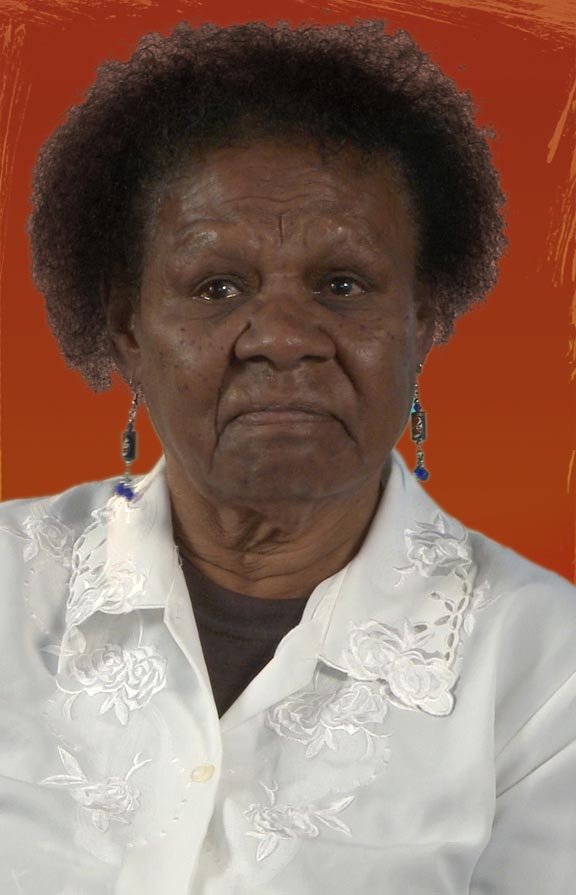
Gotta ask permission
Yeah, in those days looking for job – I can’t explain why – you have to ask council, you have to get permission. It is all up to them. If they say, ‘Yes you can go,’ you go. If they say, ‘No,’ you stay home.
If you just go, like run away, you’re in trouble. They lock you up. You go in the prison line. You have to move from island to TI [Thursday Island] with permission there.
Like from TI to Cairns I have to ask permission if I am going down Cairns. And the same thing 'no', you can’t go. You stay. But job line ... you have no job. Because TI [is] only a little place not enough jobs, lot of people walking around with nothing.
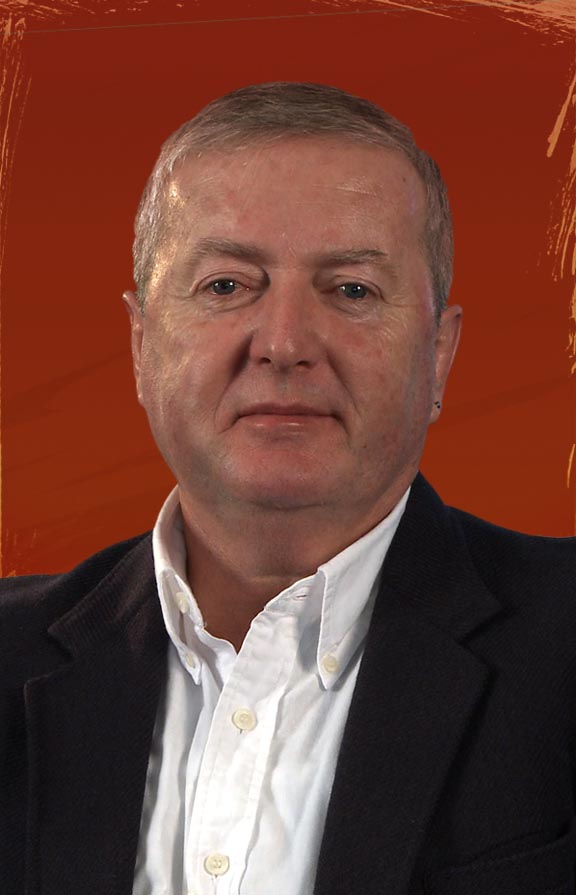
Where is your grandmother?
I’m Aboriginal. Both my parents are Aboriginal. My Mum comes from the northern suburbs of Sydney and she’s from the Guringai people, the Guringai language group and the Gai-marigal clans.
I used to spend some time with my grandmother, my mother’s Mum. We used to go shopping.
She lived in Harbord, which is a northern beach, and we’d go all the way to Manly, which is a southern beach on the North Shore. We would catch the transport which was the old double-decker buses.
Grandma would be there on the way back and she’d have the string bags all full of groceries and she always slid me my money.
Being fair skinned I didn’t realise the levels of racism in those days. This is back in the 50s and early 60s. But Grandma would slip me my tuppence or penny, halfpenny, or whatever the bus fare was, and like a child I would just race upstairs and race to the front of the bus and then sit down.
It was like surfing the bus as you sat upstairs and it was so exciting. But as a child you never thought about: ‘Where is your grandmother?’ There is this beautiful black lady downstairs sitting on the back seat where the conductor usually sat or on the first row of seats just inside the door where all the fumes of the bus were.
Grandma was quite cunning because her and Nanna Watson, another Aboriginal lady that we were very close to, when they’d go shopping together, they used to know a little bit of Maltese, and if there was a new conductor they would speak Maltese to try and act as if they were immigrants, and they could then sit at the front of the bus.
But if the conductor knew that they were Koori, knew that they were Aboriginal, unfortunately they sat in the exposed part where they got the fumes. It just gives you the idea of the racism that existed within the public transport system.
Why can’t they come inside?
My father’s family are Wiradjuri and my Dad’s father moved from the country to the city around about the turn of the century in the 1905 period and lived in Glebe.
One of the stories I remember vividly as a child is going to Mark Foys for the big Christmas extravaganza and then catching up with my uncles, my Dad’s brothers, and other family members, cousins from up the north coast, and then catching the tram back to Grandma Foley’s place at Glebe.
One particular time I’ll never forget, because I remember I was really hysterical about why my uncles, I think from Kempsey or Taree, why they stood outside on the rails of the tram.
Obviously I am showing my age – this is back in the 50s when you caught the tram from Central Station to Glebe Point. We were rounding the point off Parramatta Road into Glebe Road and I can remember it vividly. My two uncles, Uncle Leo and Uncle Jackie, were standing inside the tram and talking to my other two uncles, who were from up the north coast [and] who were standing outside the tram and the rain pelted down.
Uncle Leo and Uncle Jackie kept saying, ‘Be quiet, be quiet, be quiet’, because I was saying, ‘Why can’t they come inside with us?’ The reason why is they were black and we were fair-skinned Kooris.
They had to stay outside. So even though the rain was pouring down, these two poor fellows were there well dressed – they were quite dapper with their form guides in their back pocket, their hats on, and then holding on like – like some scared animal hanging on to the side of the tram as it rounded the corner, and the rain just pouring down on them. That was the difference between if you were black or white.
If you were a fair-skinned Koori you could ride inside the tram, if you were black you were outside. And that was really sad.
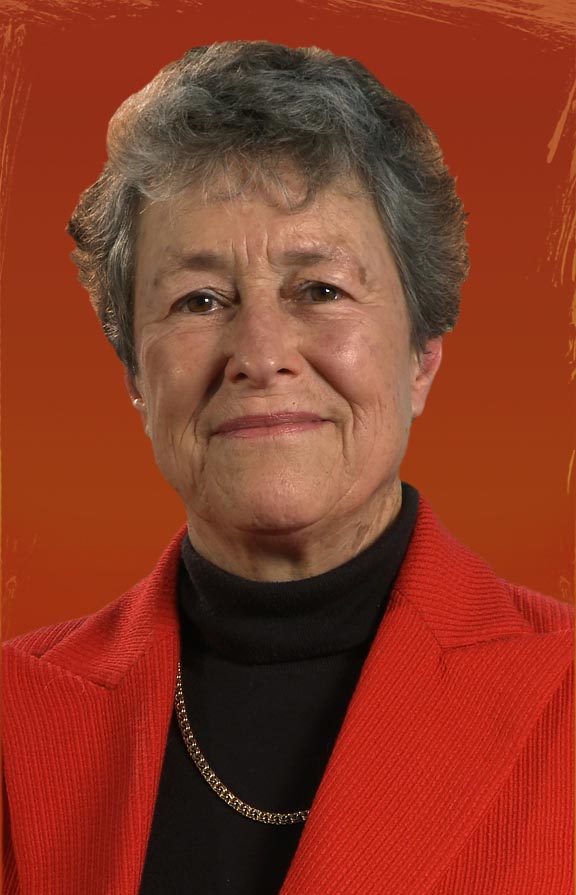
Café colour bar
In the Kimberley in the late 1960s and early 1970s discrimination was really painful to observe.
My husband Stan Davey and I were having dinner one day in a café in Broome in 1969 when Albert Barunga came in. Barunga was a really distinguished Aboriginal man.
He was a leader of his people and he was recognised by the federal government as being the statesman for tribal Australia.
He ordered his dinner and, when it was delivered to him, he was told, ‘Aborigines don’t eat in the main dining room. Aborigines eat in the room outside.’ Barunga just walked out, but Stan and I decided to do something about that.
At the time we had a newsletter going. We used to take the newsletter down to the council and pay for it to be duplicated. We typed the stencil up ourselves so we typed this story.
When we went to collect our stencil the next day with 100 copies, or however many we had paid for, had been ripped up. We were told that the shire clerk had read what we had written about one of his ratepayers and would not allow it to be duplicated in the shire council.
‘So what? They all live like that’
Before 1968 in the Kimberley in Western Australia, many of the Aboriginal people worked on the pastoral stations. But after 1968 when award wages came in, many of the stations decided to not continue employing those Aboriginal people.
They had to go somewhere, and many of them had to go to their native reserves that the government provided around the small towns.
In 1969 my husband Stan Davey and I went north to work with some of those people and help to change their conditions. In Fitzroy Crossing this native reserve was extremely barren. It was cold, it was rough, it was rocky, it had nothing in it. However, the government had provided one facility, which is one tap for 100 people.
The people were left to build their own houses. So all they could do was scrounge tin and bits of canvas that they could find off rubbish tips and wherever and build themselves little humpies. If they were unlucky and they couldn’t find tin and bits of canvas, then some of them had to sleep in old car bodies.
If they were lucky and they got those bits of old tin and canvas, they had to make a very low humpy. This was for two reasons: one is it was too hard to bash a star picket into that rocky ground to keep your canvas down; and the other was the wild winds that came up and just whistled through and took everything with them.
Out of those humpies in the morning the adults would crawl. They would crawl out, and the women had to get their children ready for school. They had to walk a couple of kilometres up to the Fitzroy Crossing government school.
So it was expected that these mothers would get their children prepared and ready for school, having had breakfast, wearing clean clothes, having their teeth cleaned, their hands and their face washed, and their hair done.
I was appalled and outraged when I saw the conditions that these people were living in and I was determined to work with the women to do something about it.
I decided to try to co-opt the services or the assistance of one of the nurses who came to work in the area. She was a very experienced community nurse. She’d worked in a lot of reserves and Aboriginal communities around the Kimberley. I thought she would share my outrage.
We walked around talking to people and having a look at the humpies that they had built and the conditions they were in, and I triumphantly said to her at the end, ‘Well?’ She said, ‘So what. They all live like that.’
Warning notice
In the late 1960s and early 1970s to be an Aboriginal person in the Kimberley was to not be an autonomous person but to be subject to many of the rules and regulations contrived by the Department for Native Welfare and exercised by the Minister for Native Welfare.
My husband Stan Davey and I came up against some of those controls. This is a warning sign that was put on the native reserves [holds up a sign headed ‘Native Reserves Warning’].
I suppose it was to prevent white men going in and poaching the Aboriginal women, and I could certainly support that, but we found that it was also used to stop people whom the department regarded as troublemakers from talking to the people on the reserve.
These people on the reserve, on the Wyndham native reserve, with whom Stan and I had been invited to talk, wanted to talk about going back to their Country. Since Stan and I decided we did not want to pay the fine, or the other penalty was to go to jail, and there was a third penalty which you could do two years hard labour if you went on to a native reserve without the permission of the Minister for Native Welfare, we suggested to the people we all go down back of the reserve and have those discussions in the creek bed through the wire fence. So I suppose people always find ways around it.
But for me this notice, this warning, is a symbol of the fact that less than 40 years ago Aboriginal people were subjected to the permission and the whims of the Minister for Native Welfare when they were adults in an autonomous society.
Who was he really?
In the late 1960s and early 1970s discrimination in the Kimberley in Western Australia was still an outrage to observe, even though it was often not very overt.
My husband Stan Davey and I were visiting one of the pastoral stations, one of the better ones in terms of their relationship with their Aboriginal workers. As we were talking to the pastoralist, we saw this very distinguished old Aboriginal man standing on the garden in front of the big house with a hose in his hand watering the garden.
We asked who he was and we were told he was the station native garden boy. Later on we found out this man did have a name. We found out also that this man and his wife were very important leaders for their people.
As we got working with these people to change their circumstances, we also were very overjoyed to watch the transition as this man was able to give up his job as the ‘station native garden boy’ and resume his position as respected elder in the community.
Even better, we were able to watch as he became the person that the pastoralists and the bureaucrats had to negotiate with if they wanted to work with those people.
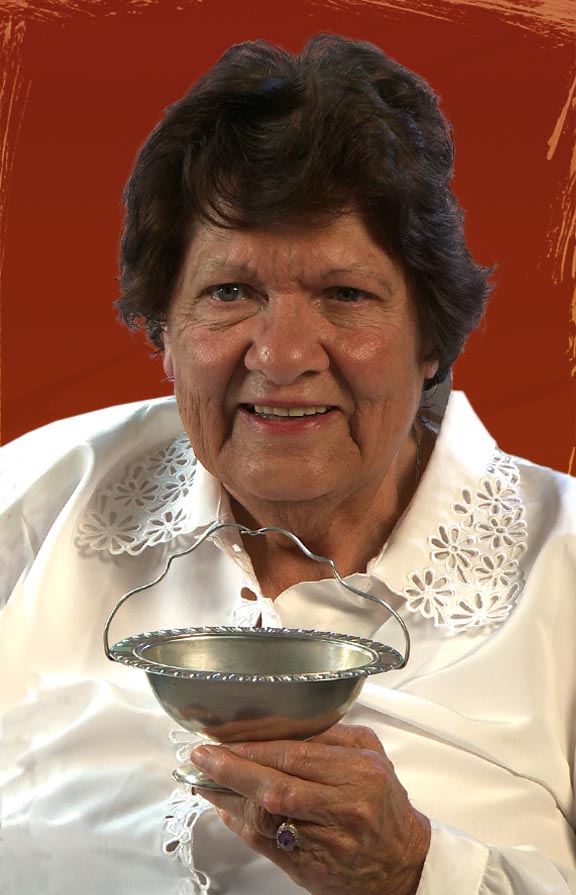
Cannon fodder
I can remember when I was young, it was in the Second World War, I was brought up in Fremantle and there was a lot of troop ships coming in and there was a lot of sailors there from America and that – so it must have been after 1942.
I don’t know how it was because it was supposed to be all confidential about ships coming and going, but my mother seemed to know and sent us, me and my brother, down.
I was only pretty young and my brother is only a year older than me. We were still going to primary school.
She’d say to us, ‘Go down to the wharf and see if you can see any Noongars down there or any of our relations down there coming off the ship,’ as the ships came in and tell them to come home.
In those days there was barbed wire all around the wharves so you couldn’t get on the wharves. So we had to climb over slippery barnacled rocks and clamber up the side near the train bridge – the old train bridge not the new one there – and then climb up to the wharf.
I was thinking Mum must have a lot of faith in us kids being able to do that because I can’t even remember if I could swim. And then we’d stand at the back a bit until we see the soldiers coming down off the troop ships.
If we see anybody with brown skin we’d yell out, ‘Mum said to come home,’ and then they’d come along and I was skipping along and dancing and we were so happy to see them and take them home.
It was really great for Mum to do that because there was a lot of people we didn’t actually know but there was quite a few who were our relations as well, because in those days the Aboriginal people weren’t allowed to stay in boarding houses. They certainly weren’t allowed to stay in hotels.
After going and fighting for the country in an overseas country dodging bullets – they were just actually used as cannon fodder – and then come home, there was no place for them. And of course they certainly weren’t allowed to go into the hotel and have a drink with their buddies, because drinking was not allowed.
So there was these guys – and they looked like men to me but they were only young fellas in their twenties – there was just nowhere for them to go. So Mum used to tell us to bring them home.
We were happy, us kids to give up our beds and let them have our beds. We’d all have a big singsong and they’d get to play their guitars and it was wonderful, like a reunion for us.
But in retrospect when I think about it, I thought how sad it was that these people had been working for their country and when they land back in their country and they are waiting for their train or their bus to go down to where they belong to the country areas, there was just nowhere for them to go – nowhere – unless they were sort of rescued into private houses.
I don’t know about what other people did. But I know that this is what we always used to do, bring them home.
Then I found out in later life that my cousin who I idolised, he must have only been about 25 then but I thought he was a big man, when he got home to his town in – I am trying to think where it was; I can’t think of the name of the town now – well, he’d found out that his children had been taken away and put into an institution and they weren’t allowed to live in the town.
He wasn’t even allowed to live in the town after he came out from the war after fighting all those years. It was very distressing. When I looked at it I thought it must have been heart-breaking to come back and you find out all your family is destroyed and you are not even accepted in the community.
Off the streets by 6pm
When I was growing up in Perth there was a curfew on Aboriginal people. Aboriginal people weren’t allowed on the streets after 6 o’clock. If you were on the streets after 6 o’clock, well, the policeman could come along and take you straight to jail.
So people like my mother, who was working as a domestic in families, mightn’t knock off until about 7 or 8 o’clock. She had to have a piece of paper so that she could walk through town before she can catch the bus or the train to go home. If she didn’t have that ticket, well, they’d take her straight to jail.
And that was the way the story was in Perth for Aboriginal people. Aboriginal people weren’t allowed over the railway line. They could just go to just where the railway station was, where the toilet was, but they could not walk in the CBD. That’s the way it was in Perth when I was growing up.
Twice as good, just to get to first base
You see this? [shows a small silver bowl]. This is the greatest thing that ever happened to me in my life – a lesson in my life – because I won this in the 1940s ... 1947 I think it was, when I was about 11. I had to run a race and I was lined up and run the race, and it was for older people I think, and I won it.
I rushed back to tell Mum and Dad that I’d won: ‘I’d won! I’d won!’ and as I looked around behind me I could see them lining up again. I said, ‘Hang on, they’re lining up again.’ So I rushed back and got in the line again and won the race!
Because they didn’t actually want to give me this little thing, and it was the pride of the gas workers picnic – Dad was at the gas works there – [and it was the] pride of the gas workers picnic for the people to win this EPNS [electro plated nickel silver] little sugar basin.
It has told me the greatest lesson in my life, that to be an Aboriginal person I have to be twice as good as anybody else to get to first base, never mind about getting ahead and doing all the rest of it. So that really is the lesson. And it stayed with me all these years and I live by that.
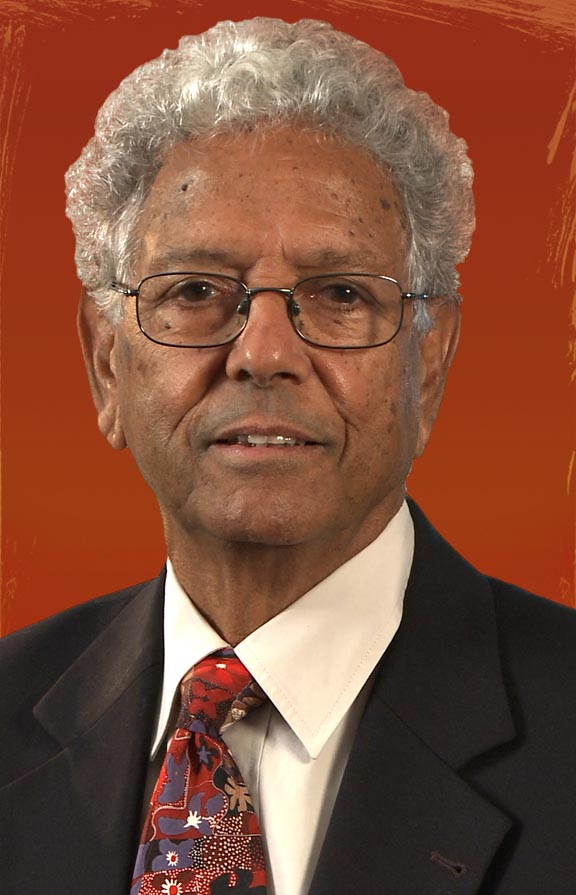
Dog tag
Back in the late 1950s and early 1960s when I was coming into manhood, we had laws governing us that didn’t govern anyone else.
For instance, the welfare officer – at that time I was still a ward of the Northern Territory Government living in Adelaide – and the welfare officer was the all-powerful person that can govern where you lived, how you lived, and when and where you could be transported to.
These laws were very harsh on Aboriginal people which really put us in the category of a second-class citizen which did not allow you to move freely in society.
If we had to move freely in society, we had to take out exemption, which was called an exemption card but we called it the ‘dog tag’ which was to me a derogatory part of the Australian law system, particularly as it pertained to Aboriginal people and no-one else.
If you wanted to get an exemption card, you would have had to go through a number of tests and so on. But that card in essence told you that this person had attained a standard of living equal to that of a white man and would be treated as a white man.
I thought this was absolutely devastating to me as an Aboriginal person, a person with an identity that really had something to contribute in this country, and I wanted to change it.
This is why I fought very hard and long, with a handful of Aboriginal people, to bring about changes in Aboriginal affairs culminating in the 1967 Referendum where we were granted citizenship rights, where the federal government took over the responsibilities of Aboriginal people and this gave us the rights to be counted as an Australian citizen.
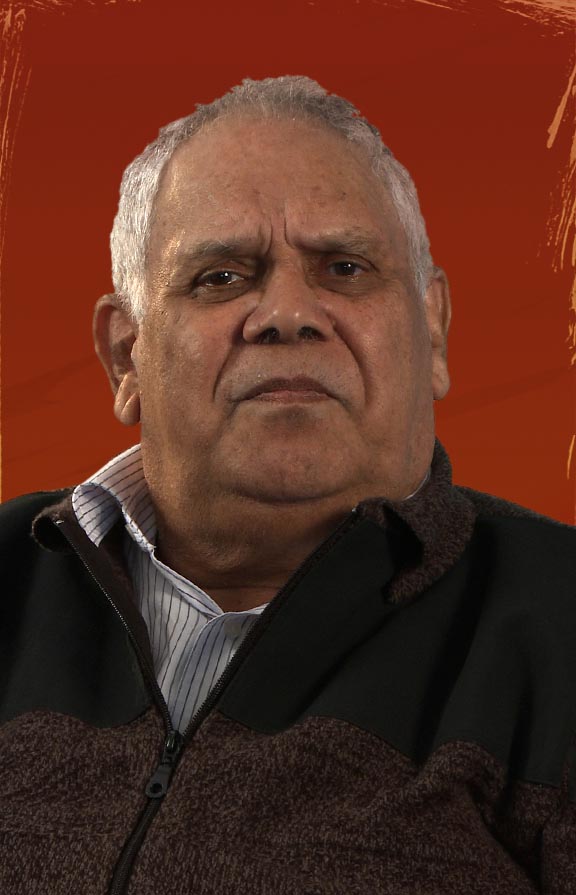
All you learnt was the English history
When I was going to school, when it came time to learn English or maths we were sent out to clean up the yard and do the yard and pick up all the papers and garbage around the school yard.
But when it came time to learn the English history – and that was all you learnt at school was the English history – they kept us in the class to learn English history.
Resisting arrest
In Redfern in the 1960s, you’d get into a pub and have a drink, but then if the pub was too crowded and the streets were too crowded and there was a lot of people – there was an unwritten sort of curfew by the police to get all the Aboriginal people off the streets before 10 o’clock or by 10 o’clock.
I remember a couple of my friends were working night shift and they would come home from work and they’d be picked up on the streets and charged with drunkenness – and they hadn’t had a drink – or be charged under the old Summary Offences Act, and under the old Summary Offences Act it was drunken and disorderly.
And if you questioned the police in any way, you were resisting arrest. Those were the types of conditions they put on people.
Which pub? Which bar?
In the 1950s when I was in my teens, to go into a pub or a bar to have a drink we had to find out from other people which pubs one was allowed into. And then when you went into the bar it was generally up one end of the bar, and it was always in the public bar, never in the private bar.
All the whites drank in the private bar, and the workers and the Aboriginal people drank in the public bar. But even then you weren’t sure how long you were allowed to stay there. Sometimes they would only allow for one or 2 drinks and then chase you out.
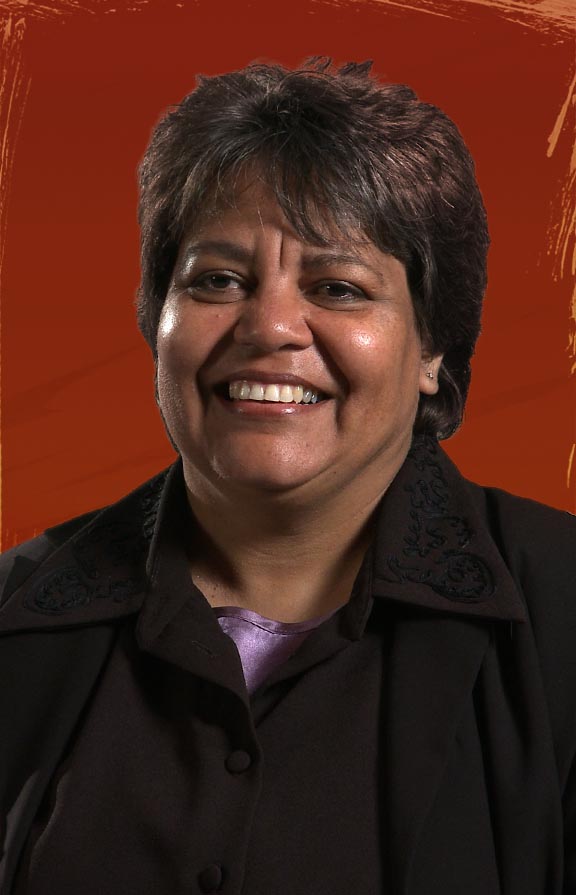
To save me for Country ... and the Country saved us
I was born in Batchelor in 1962, March 20th, which is about 100 kilometres south of Darwin.
And at that time the policeman had to then report me, because I was a half-caste baby, to the [Department of] Native Affairs.
We were then sent to Bagot Aboriginal Reserve on the Bagot Road just outside of the Darwin city.
My mother overheard the matron in the hospital there that they were going to send the half-caste baby away from the full-blood mother.
So my mother then told the matron that she had to go and get some nappies and safety pins from the Winnellie shops, and the matron thought that Mum had some but she had hidden them.
So we went down to the Winnellie shops. And my Mum got the nappy and safety pins, and she continued down the Stuart Highway to where the big white tank is. You have to remember that it’s the middle of the wet season and the spear grass is 10 foot tall and the rivers all raging, and creeks and streams are in flood.
We got dropped off at the Blackmore River and my mother bundled me up in some paperbark and tied me to her head and swam across the river with all her belongings. That was the biggest river that we had to cross.
Where she was heading was back to the Wagait Aboriginal Land Trust, which is our traditional country. It belongs to the Mak Mak Marranunggu people. And Mum swam about 5 creeks with me bundled up on top of her.
I often think about my mum, what an amazing woman she was to have the strength to run away with me and escape from Bagot, and to face not only the dangers of what was going to happen to me being separated from her and taken away but the fact that she went across country through such harsh conditions to save me for Country. And the Country saved us in actual fact.
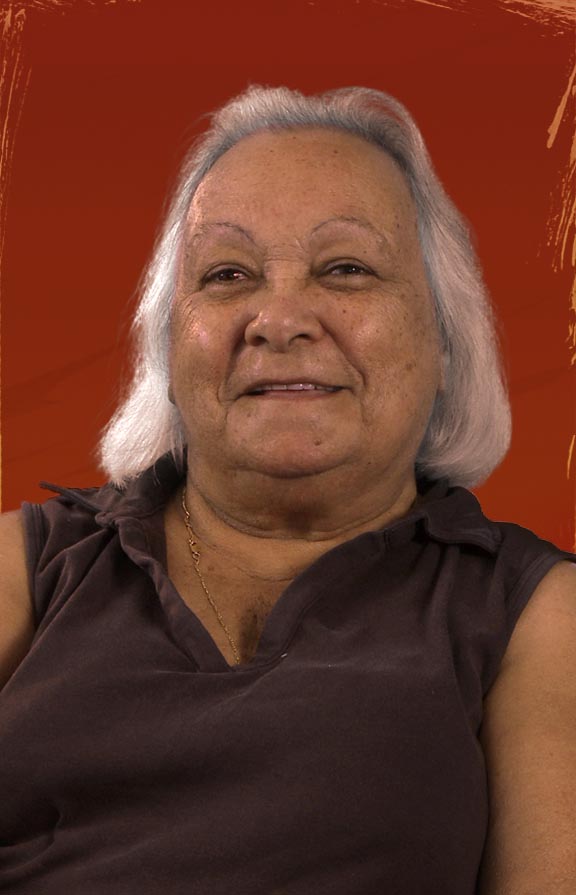
Last in first out
We lived at Fingal and we used to row across the river to go to the movies, mainly of a Saturday afternoon. The Empire Theatre used to be in Tweed Heads.
We used to have to wait for everybody, for all the white people to walk in first.
And then when the cinema started, then they used to call all the Aboriginal people in and they had a little part that was sectioned off, roped off.
Then when the people sat down, when they were all in and sat down, they used to pull the curtains across so nobody else would see them there.
And then when the movies were finished, they’d be the first ones to be taken out. They were out first before all the rest of the theatre were out.
So we were the last ones in and the first ones to leave just so that no white people would see the Aboriginal people – kids in the movies, and that was 1950s.
What about me?
The song that Shannon Noll sings ‘What about me?’ about the little boy standing at the corner store and he’s too tiny to be seen by the shopkeepers to see that he was standing there waiting for his lollies or whatever, it reminded me all the time about when we were young – even now still – you are standing at the shops waiting to be served. And other white people are coming in, and they are being served before you, and you are just standing there waiting.
So I always think that song was made for the Aboriginal people because it’s their song: what about me?
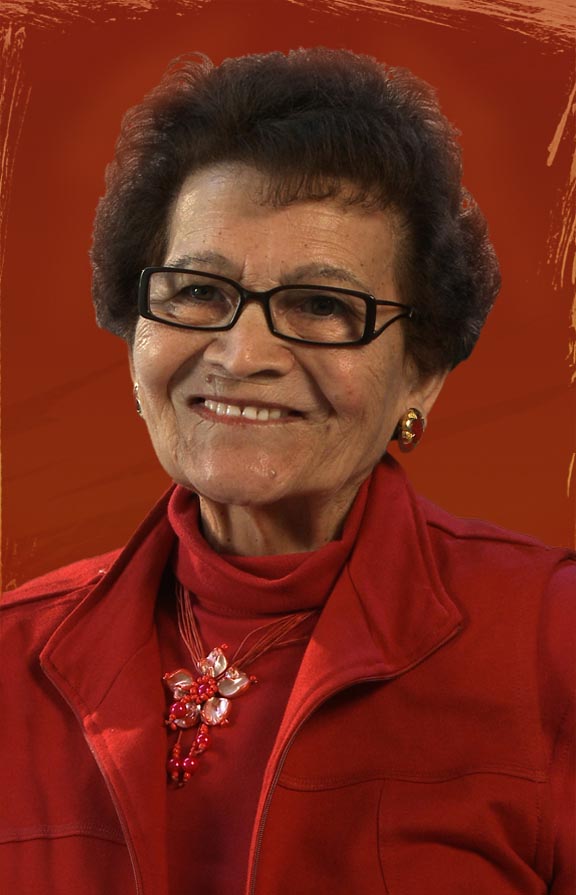
Hickory Dickory Dock
Warning: This story from Aunty May O’Brien uses words that were intended to be offensive to Aboriginal people. It is not the intention of Aunty May or the National Museum of Australia to cause offence by repeating such words.
May O’Brien: I was born in a creek bed on the edge of Edjudina station, which is about 200 miles north-east of Kalgoorlie.
It was at that time when Aboriginal women were not allowed to go into hospitals to have their babies. But it didn’t worry us because we had our own way of bringing babies into this world.
I remember a time after that when I was taken – we walked, not taken – we walked all the way to Kalgoorlie in Western Australia.
We were starving out in the bush. We were eating grubs and things, because there was hardly any rain. And we walked to Kalgoorlie and then we walked in the laneways looking and begging for food.
There were some kind people who came out and gave us bread and tea. At other times we just walked up.
I remember a time when the kids would yell out to us, the non-Aboriginal kids, and they would yell out things like in particular: ‘Nigger, nigger, pull the trigger, bang, bang, bang!’ It sounded a nice ditty to me. But when I went to the Mount Margaret Mission School, I realised then.
It was at a time when children were saying, ‘Hickory Dickory Dock, the mouse ran up the clock’. And I thought to myself I know a nursery rhyme too, so I put my hand up and the teacher said, ‘The new girl is going to give us a new nursery rhyme.’
So I stood up and said, ‘Nigger, nigger, pull the trigger, bang, bang, bang.' Before I could finish that, all the other little kids yelled out, ‘She’s rude, she’s rude, she’s rude.’ And I stood there and I sat down and I cried my heart out.
But I loved the mission school, because it taught me how to read and write. And it wasn’t long after that that I was able to become a monitor in the school, and from there onwards I went to a school in Perth, a high school. I lived in a hostel and went to a high school called Perth Girls School.
It was there that I continued my love of learning. Learning to me was exciting, learning new things. And then later on after teaching in schools for 35 years I became the superintendent of education in the state of Western Australia.
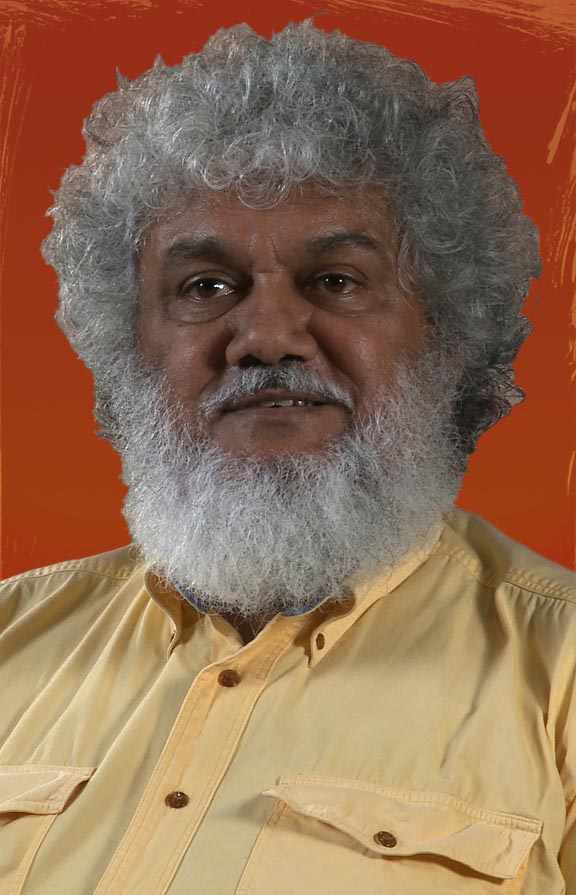
I’ll fight him for you Dad!
Dad worked in the railway as a fettler. There was a particular time there when a new ganger came in and, as I sit and think back on it, it’s interesting in a lot of ways because he’d have been a reasonably young man himself at the time, probably in his 30s or early 40s, and he had a daughter attending school and he treated Dad quite poorly.
Dad was the only Aboriginal person in the gang and he was certainly the oldest. At that time he would have been in his early 60s. He’d be calling Dad ‘boy’.
He’d get Dad to do all the menial tasks that was usually left for what they would call ‘the nipper’ in those days, a young boy who started and was there to do all the running around, but he’d get Dad to do this.
He’d also be niggling and sniping at him and making off-handed remarks. One of the things my Dad taught me in life was patience by example. I mean, he tolerated it and tolerated it.
One morning standing around, and all the locals would come in – they’re all dairy farmers in those days and they would bring the cream or milk in to put on the train – so there would have been probably with the 2 or 3 gangs there, the station master and probably at least 15 to 20 locals, and finally Dad said to the ganger, ‘Let’s step outside the fence,’ ie outside of government or railway property, ‘And we’ll sort it out’.
Dad was clearly pushed to the point of having to do something about this. The ganger was swaggering along behind and my older brother, bless him, was a 12-year-old boy pushing his father back saying, ‘I’ll fight him, I’ll fight him.’ So he holds a special part in my heart as well, my brother.
The station master said to the ganger, ‘We know who’ll be coming back inside the fence,’ because Dad’s reputation as a boxer was quite legendary in the district. And at that point the ganger stopped.
The interesting thing was from that point on the whole dynamic changed. Dad had called his bluff, and from that point on he couldn’t do enough for us.
Mum’s letter to my school
I grew up in the country north of Bundaberg in Queensland and I am the youngest of 5. My dad and mum were very good teachers, very good parents. Mum put all of us through a correspondence school before we went to school formally.
When I went up to school I encountered racism from kids name-calling ‘blackie’ and various other terms that upset me. I can remember going home many, many times crying, or my older siblings I guess would have been telling Mum and Dad as well about what had gone on.
I don’t know how long it was before things came to a point; it could’ve been weeks or it could’ve been months. Mum wrote a letter one day and sent it to school with my older sister and that afternoon we got a break from school early, maybe half an hour, maybe an hour.
We thought it was pretty good getting an early break and getting home. So we went home and the next day we came to school and it all changed.
I have often wondered what my Mum wrote in the letter. I did ask her one time, but she was not forthcoming. And of course I asked her a long time after the event so she probably didn’t remember anyway other than the general things that she would have said.
And I often also wonder what the teacher said, because he obviously spent a lot of time and got the point across to the other kids at the school.
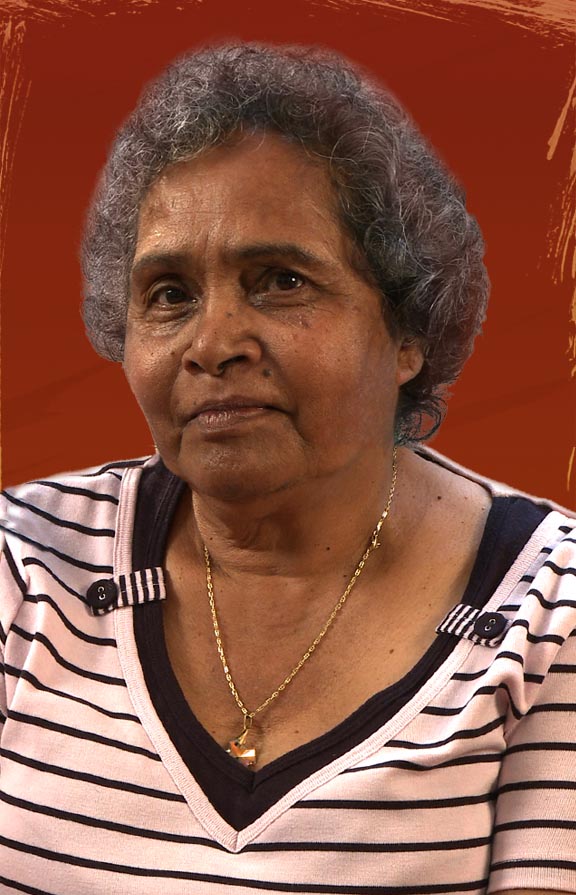
Just driving along the road
I have lived most of my life in Brisbane. I’d just like to tell you a story about when I bought a new car.
A couple of weeks after I was just driving along the road and I got pulled over by the police. They had the cheek to ask me, ‘Was it mine?’ because they found all that out in registration and everything else.
It’s sad because, as I say, they used to pull us over before when we had an old car to see if they could find something wrong with it. And they’d pull you up in a new car and they’d think you had stolen it.
And I think I’m a little bit too old to be stealing cars.
Explore From Little Things Big Things Grow
You may also like